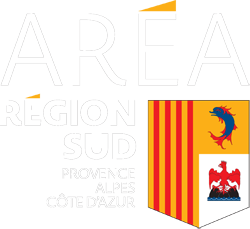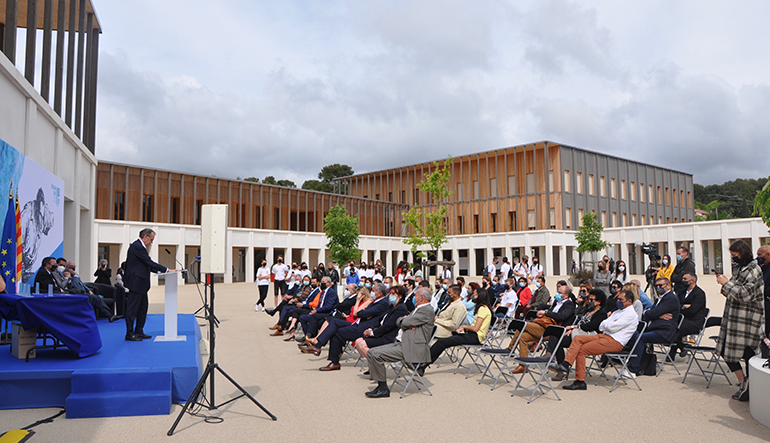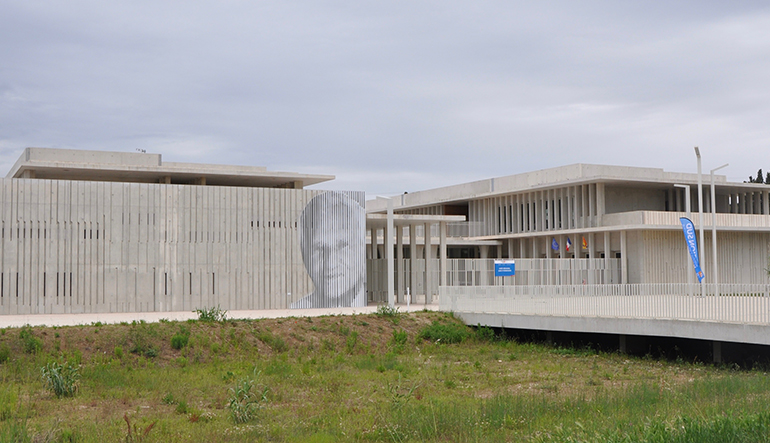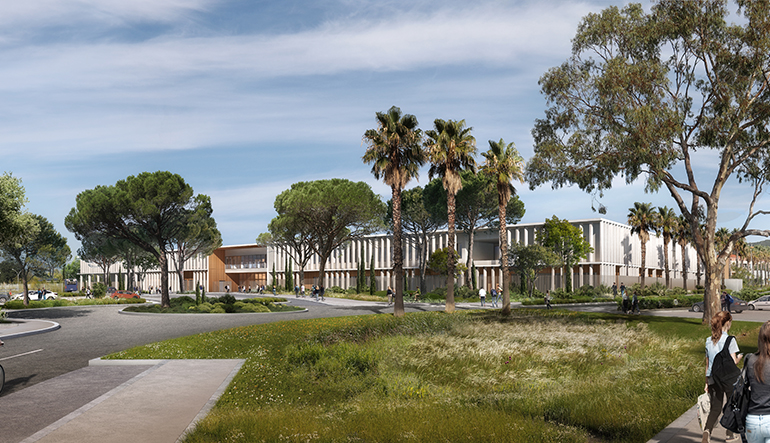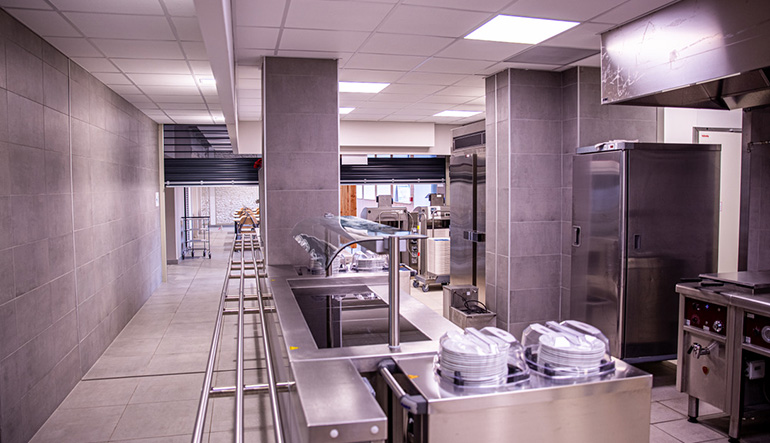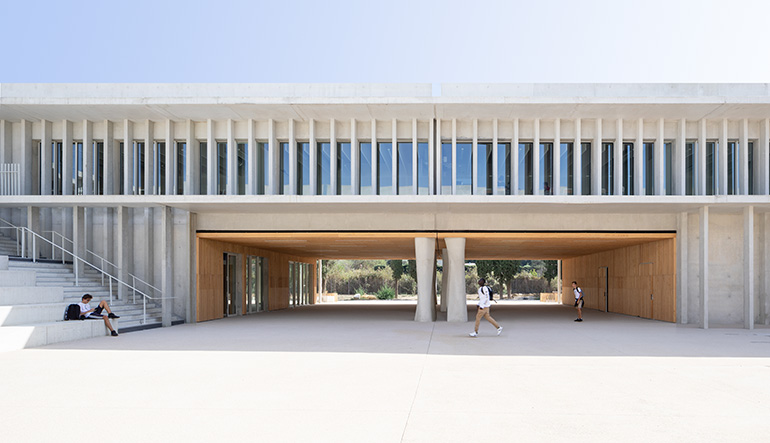Le projet IMPULSE d’amélioration thermique des bâtiments sélectionnés dans le programme MED
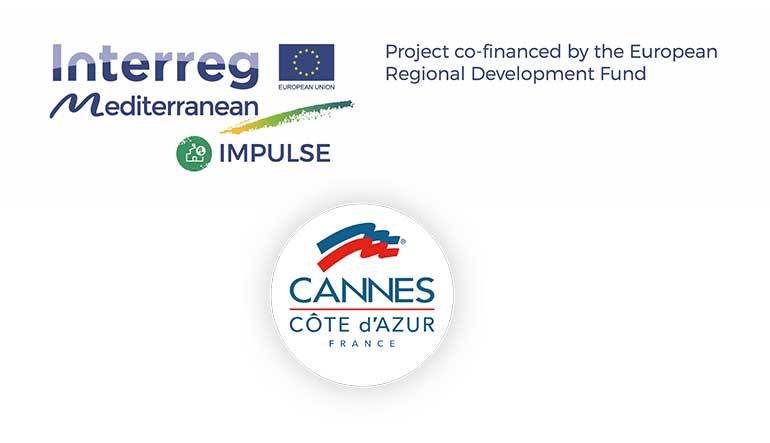 Enjeux du projet
Enjeux du projet
IMPULSE va élaborer un système intégré permettant de planifier des interventions d’efficacité énergétique dans des constructions publiques.
L’un des enjeux des collectivités publiques consiste à réaliser ces plans d’efficacité énergétique de manière fiable et abordable pour leur patrimoine, sachant qu’elles disposent généralement de capacités financières limitées.
Concrètement, cela se traduit actuellement au plan local par des Plans d’Action d’Énergie Durable qui sont quasi-inexistants ou incomplets.
L’origine de ces lacunes tient d’une part dans le manque de données de consommation d’énergie concernant leur patrimoine et d’autre part de systèmes d’aide à la décision faciles à utiliser pour élaborer les plans d’action les plus abordables avec des solutions finançables et réalistes.
Le projet a donc bien identifié ce besoin de solutions d’aide à la décision concrètes aussi bien que d’approche transnationale pour représenter et modéliser des conditions diversifiées dans des constructions, des solutions énergétiques, des climats, des règlements, etc … afin d’aboutir à une plus large prise en compte des spécificités méditerranéennes.
Mise en oeuvre
Aussi, l’approche transnationale du projet prévoit le test grandeur nature dans des Villes méditerranéennes « pilotes » représentatives des 6 pays participant au projet :
- la Municipalité d’Héraklion – Grèce,
- la Ville d’Elche – Espagne,
- la Ville de Cannes – France,
- la Municipalité de Ravenne – Italie,
- la Ville d’Osijek – Croatie,
- la Ville de Mostar – Bosnie-Herzégovine.
Cette expérimentation réutilisera des méthodes établies lors de projets européens précédents pour l’établissement de typologies de bâtiments publics méditerranéens accompagnées d’interventions optimales en termes de coût et de progressivité des plans de rénovation.
Les résultats seront consolidés dans un but transnational au sein d’un site Web intégrant des données d’informations géographiques. Il constituera ainsi un outil de prise de décisions convivial pour établir des plans de rénovations énergétiques durables ayant un faible temps de retour.
Enfin, l’outil sera testé sur les projets de rénovation à petite échelle dans chaque Ville pilote et évalué ultérieurement lors des activités de transfert auprès d’autres collectivités : communication, formations, conférence, visites, …
Fiche Technique du projet
Programme : Interreg MED 2014-2020
Objectif visé : 2.1/ Atteindre une capacité de meilleure gestion de l’énergie dans les bâtiments publics à une échelle transnationale
Type : projet pilote (M2)
Partenaires : Centre for Renewable Energy Sources and Saving – Greece, Municipality of Heraklion – Greece, Valencia Institute of Building – Spain, Elche City Council – Spain, EnvirobatBDM – France, Equipment and development Regional Agency from Provence – Alpes – Cote d’ Azur – France, Municipality of Ravenna – Italy, Energy Institute Hrvoje Požar – Croatia, City of Osijek – Croatia, City of Mostar – Bosnia and Herzegovina.
Partenaires associés : Regional Development Fund of Crete (RDFC)-Greece, Provincial Energy Agency of Alicante, Valencian Community Foundation-Spain, Comunidad Valenciana Region-Spain, Ville de Cannes-France, Society for Sustainable Development Design-Croatia, Regional Development Agency of Slavonia and Baranja-Croatia
Budget Total: 2,222,863.00€
Budget AREA : 288,500.00€
Lancement et fin du Projest: 1 Nov 2016 – 30 Avril 2019 (30 mois)
Site WEB (en construction): http://interreg-med.eu/en/home/
English version
IMPULSE short description
IMPULSE introduces an integrated management support system for planning energy efficiency interventions in public buildings. The main challenge tackled is the insufficient capacities of public administrations to set-up reliable and affordable energy efficiency plans for their public building stock, which at local level is reflected by missing or incomplete Sustainable Energy Action Plans (SEAPs).
The main problem is the lack of available energy consumption data for the building stock and of easy-to-use decision-support systems to conclude the most affordable action plans with bankable and realistic solutions. The project acknowledges the need for concrete decision-support solutions as well as the transnational approach needed to account for MED diversified conditions in buildings, energy solutions, climate, regulations, etc., towards the wider capturing of MED specificities.
The project’s transnational approach foresees extensive testing in representative pilot MED Cities in 6 Countries (Municipality of Heraklion-Greece, City of Elche – Spain, City of Cannes – France, Municipality of Ravenna – Italy, City of Osijek – Croatia, City of Mostar – Bosnia and Herzegovina), of previously established methods for the conclusion of MED public building typologies accompanied with cost-optimal interventions and financial and gradual renovation plans.
The results are organized into a transnational purpose web and GIS-based information system being a user-friendly decision making tool for affordable SEAPs with high impact. The tool is verified through small-scale renovation projects in each pilot City and further evaluated through targeted transferring activities.
Funding Program: Interreg MED 2014-2020
Programme objective tackled: 2.1/ To raise capacity for better management of energy in public buildings at transnational level
Project type: Pilot project (M2)
Partners: Centre for Renewable Energy Sources and Saving – Greece, Municipality of Heraklion – Greece, Valencia Institute of Building – Spain, Elche City Council – Spain, EnvirobatBDM – France, Equipment and development Regional Agency from Provence – Alpes – Cote d’ Azur – France, Municipality of Ravenna – Italy, Energy Institute Hrvoje Požar – Croatia, City of Osijek – Croatia, City of Mostar – Bosnia and Herzegovina.
Associated partners: Regional Development Fund of Crete (RDFC)-Greece, Provincial Energy Agency of Alicante, Valencian Community Foundation-Spain, Comunidad Valenciana Region-Spain, City of Cannes-France, Society for Sustainable Development Design-Croatia, Regional Development Agency of Slavonia and Baranja-Croatia.
Total Budget: 2,222,863.00€
AREA Budget: 288,500.00€
